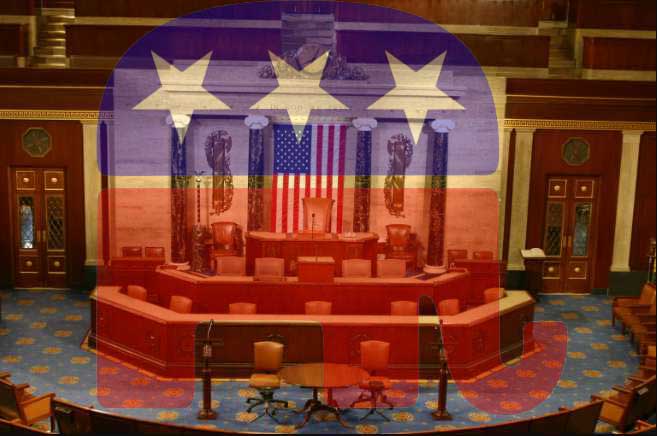“This commission is a poison pill designed to slash Social Security and Medicare behind closed doors.”
Social Security defenders are sounding the alarm ahead of a Thursday House Budget Committee hearing and vote on the Fiscal Commission Act, bipartisan legislation that opponents say is a ploy to fast-track cuts to the popular New Deal program without political accountability.
“This commission is a poison pill designed to slash Social Security and Medicare behind closed doors,” Nancy Altman, president of Social Security Works, said in a statement ahead of Thursday’s markup. “The White House has accurately stated that such a commission is a ‘death panel for Medicare and Social Security.'”
Altman warned that House Republicans, who have made a so-called fiscal commission a top priority, are “rushing to advance” the Fiscal Commission Act so they can attempt to tie it to must-pass government funding legislation. Rep. Jodey Arrington (R-Texas), the chair of the House Budget Committee, said in late November that appropriations bills are a “likely vehicle” for the fiscal commission.
“Democratic leadership should respond that our earned benefits are non-negotiable, and that they will not accept a commission under any circumstances,” said Altman. “Instead, any legislation on Social Security should go through regular order so that Congress can debate it in the sunlight.”
Social Security Works is urging members of the public to call their representatives and express opposition to the Fiscal Commission Act ahead of Thursday’s committee hearing, which is scheduled to begin at 10:00 am ET.
Progressive Democrats on the GOP-controlled House Budget Committee are expected to push back forcefully against the commission bill, which is led by Reps. Bill Huizenga (R-Mich.) and Scott Peters (D-Calif.), a budget committee member. Sens. Mitt Romney (R-Utah) and Joe Manchin (D-W.Va.) are spearheading a companion measure in the Senate.
Last week, Rep. Jan Schakowsky (D-Ill.)—a member of the budget panel—co-led a letter to the House leadership opposing the legislation and arguing that debates over Social Security and Medicare “should be done in the open and not behind closed doors.”
“Social Security benefits are already modest—only about $21,384 a year, yet Republicans want to put these hard-earned benefits at risk,” Schakowsky said in a statement. “We must expand Social Security benefits, not cut them.”
But the bill is likely to get some Democratic support from the budget panel: Rep. Jimmy Panetta (D-Calif.), a committee member, has joined Peters in co-sponsoring the legislation.
[perfectpullquote align=”right” bordertop=”false” cite=”” link=”” color=”” class=”” size=””]”This bill does not deserve a markup or a vote—or, frankly, to see the light of day.”[/perfectpullquote]
If passed, the Fiscal Commission Act would establish a panel of 16 members selected by Republican and Democratic congressional leaders.
The panel would consist of both lawmakers and individuals from the private sector, and it would have a mandate to craft policy recommendations “designed to balance the budget at the earliest reasonable date” and improve the “long-term fiscal outlook” of the nation’s trust fund programs, including Social Security and Medicare, according to a summary from Huizenga’s office.
The commission would then vote on whether to advance its recommendations shortly after the 2024 election. If approved by the commission, the proposals would receive expedited consideration in both the House and Senate, with no amendments allowed.
Polling data released last year by Data for Progress showed that a fiscal commission tasked with cutting Social Security and Medicare is overwhelmingly unpopular with U.S. voters, including 78% of Democrats, 72% of Independents, and 65% of Republicans.
Max Richtman, president and CEO of the National Committee to Preserve Social Security and Medicare, said ahead of Thursday’s markup that “a fiscal commission is designed to give individual members of Congress political cover for cutting Americans’ earned benefits.”
“Any changes to Social Security and Medicare should go through regular order and not be relegated to a commission unaccountable to the public and rushed through the Congress,” said Richtman. “This bill does not deserve a markup or a vote—or, frankly, to see the light of day.”
Common Dream’s work is licensed under a Creative Commons Attribution-Share Alike 3.0 License. Feel free to republish and share widely.
[content id=”79272″]






